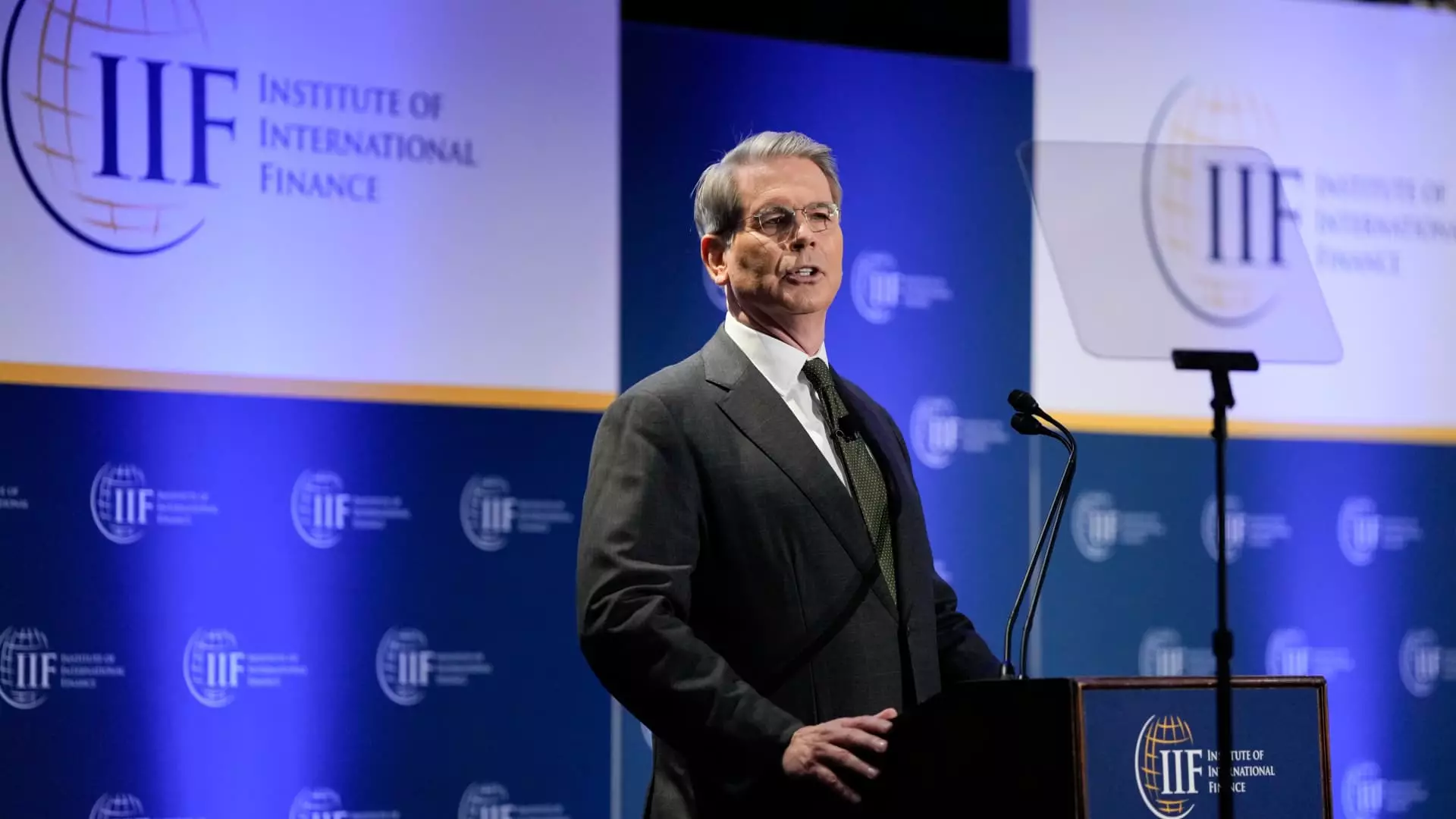In a landscape marked by tumultuous economic conditions, Treasury Secretary Scott Bessent has voiced a striking perspective on US-China trade relations. He emphasized a significant opportunity for transformative negotiations, contending that if China is genuinely seeking to readjust its economic strategy, the United States should join forces to facilitate this evolution. This notion isn’t just about averting a trade war; it’s a call for mutual growth and equitable outcomes in a complex global trading system. Acknowledging that the delicate balance between competitive nationalism and cooperative progress can lead to unprecedented outcomes is essential, and Bessent’s vision encapsulates this potential for collaboration.
The Tariff Tug-of-War: A Double-Edged Sword
With staggering tariffs of up to 145% imposed by the Trump administration on Chinese goods, the economic chess match between the two nations has become perilous. While these tariffs stem from a legitimate desire to protect American jobs and industry, they also generate a bevy of unintended consequences that can ripple through both economies. Bessent proposed scaling these tariffs back significantly—though still to steep levels—which illustrates a stark rethinking of modern trade diplomacy. The troubling specter of a trade war is looming and, if left unchecked, could spiral the global economy into turmoil. It is paramount to assess the long-term impacts of such protectionist measures before they entrench a divisive economic environment further.
Restoring the Bretton Woods Framework
Bessent’s call for revitalizing institutions like the International Monetary Fund (IMF) and the World Bank is especially relevant in today’s fast-paced financial environment. His assertion that these organizations need critical reforms—especially in their approach toward countries like China—is not just reasonable, but necessary. It’s perplexing to witness the World Bank continue to treat China, a nation with vast economic prowess, as a developing country, thus perpetuating a model that undermines the efficiencies of private market growth. The notion of ‘mission creep’ highlights the risks inherent in these institutions’ evolving roles, emphasizing the urgent need for recalibrated missions aligned with contemporary economic realities.
Manufacturing Decimation: A National Security Concern
One of the most alarming dimensions of this economic narrative is Bessent’s depiction of a hollowed-out American manufacturing sector. This isn’t merely a matter of economic inconvenience; it’s a direct threat to national security and the overall stability of the American economy. Allowing foreign policy decisions to chip away at domestic manufacturing roots is a perilous game that may yield instant gratification but could lead to long-term repercussions on jobs, national pride, and self-sufficiency. Understanding that economic interdependence bears both risk and reward, the US must tread lightly, ensuring its policies promote not just survival but revitalization and innovation in key industries.
China’s Economic Ascendancy and Global Dynamics
Bessent’s acknowledgment of China’s meteoric rise serves as a double-edged sword—signaling both an impressive economic evolution and a challenge for Western economies. Navigating this dynamic requires a nuanced understanding of global interdependencies. The attempts to throttle China’s growth through outdated frameworks risk alienating a key player in the global economy, sparking unpredictable retaliatory measures. The path forward should facilitate healthy competition rather than stagnate it through exclusionary policies. The narrative surrounding China is no longer simply that of an emerging economy; it reflects a formidable competitor that prompts reevaluation of both domestic and international economic strategies.
As we stand on the precipice of what could be a significant pivot in international relations, it is imperative that American policymakers, under the guidance of voices like Bessent’s, embrace this moment of potential. The future of global trade hinges upon our ability to embrace cooperative strategies that foster mutual growth, respect competition, and accelerate innovation. The possibilities before us are not merely theoretical but essential if we are to create a world where economies can thrive together rather than retreat into isolation. The opportunity for a beautiful rebalancing is not just an economic aspiration; it is a communal imperative to forge a more sustainable future.


Leave a Reply